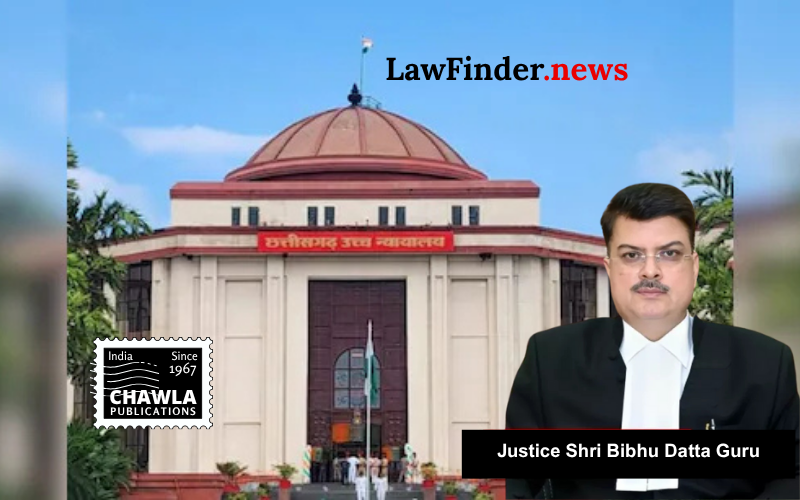Demand and Acceptance of Bribe Not Proven, Appellant Acquitted
In a significant ruling, the Chhattisgarh High Court has overturned the conviction of Jageshwar Prasad Awadhiya, who was previously sentenced under the Prevention of Corruption Act, 1988. The judgment, delivered by Judge Bibhu Datta Guru on September 9, 2025, acquitted Awadhiya of all charges due to insufficient evidence regarding the demand and acceptance of illegal gratification.
Awadhiya, a former Bill Assistant at the Divisional Workshop of M.P.S.R.T.C. at Raipur, was accused of demanding a bribe of Rs. 100 from the complainant, Ashok Kumar Verma, to clear arrears from his service period between 1981 and 1985. The case, which originated in 1986, involved a trap set by the Anti-Corruption Department wherein tainted currency notes were recovered from Awadhiya.
The High Court's decision hinged on the prosecution's failure to establish the essential elements of demand and acceptance of a bribe. Despite the recovery of tainted money, the court emphasized that mere possession does not suffice for conviction under Sections 7 and 13(1)(d) of the Prevention of Corruption Act.
Defense counsel argued that the appellant was incapable of processing the arrears without higher authority approval and claimed false implication. The court found merit in these arguments, noting inconsistencies in the prosecution's evidence and procedural lapses during the trap operation.
Furthermore, the court addressed the validity of proceedings under the 1988 Act, given that the sanction for prosecution was issued under the repealed 1947 Act. It clarified that actions taken under the old Act remain valid under the new Act, provided they are not inconsistent with its provisions.
The judgment references multiple Supreme Court decisions, reinforcing the principle that demand and acceptance must be proven beyond reasonable doubt. The court concluded that the prosecution failed to establish a continuous chain of events proving demand, acceptance, and recovery, thereby rendering the conviction unsustainable.
Awadhiya's acquittal marks a pivotal moment in the application of anti-corruption laws, reaffirming the judiciary's commitment to upholding due process and evidentiary standards. The ruling serves as a reminder of the rigorous proof required to convict individuals under corruption statutes.
Bottom Line:
Corruption - Demand and acceptance of illegal gratification are sine qua non to establish the offence under Sections 7 and 13(1)(d) of the Prevention of Corruption Act, 1988. Mere recovery of tainted money is insufficient to sustain a conviction in the absence of proof of demand and voluntary acceptance.
Statutory provision(s): Sections 7, 13(1)(d), 13(2) of the Prevention of Corruption Act, 1988; Section 30(2) of the Prevention of Corruption Act, 1988; Section 437-A of Cr.P.C. (481 of Bharatiya Nagarik Suraksha Sanhita (BNSS)).
Jageshwar Prasad Awadhiya v. State of Chhattisgarh, (Chhattisgarh) : Law Finder Doc Id # 2781899




